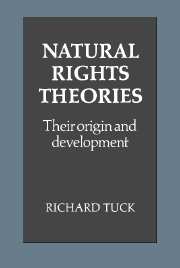Summary
To provide full acknowledgements for the help I have received on this book would ideally require the public recognition of assistance given to me by innumerable people at home, school and university – all the people who would have to figure in any complete explanation of why I have written this book. Short of providing that complete explanation, the acknowledgements must necessarily be inadequate. But it is right to single out the following people as having had a special role in its genesis. Quentin Skinner must of course have pride of place: it was he who originally sharpened my interest both in this kind of history and in political philosophy, and who since then has been a constant critic and friend – the perfect audience for whom to write. His own book, The Foundations of Modern Political Thought (Cambridge, 1978) appeared too late to be more than briefly acknowledged, but much of what I say takes on a new significance in the light of his survey. What I know about political philosophy in general and rights theories in particular I owe to many conversations over the years with him and with other friends – especially John Barber, John Skorupski, John Urry, Ron Smith, Jane Heal, Albert Weale, Philip Pettit, Jeremy Butterfield, Jonathan Lear and Stefan Collini.
- Type
- Chapter
- Information
- Natural Rights TheoriesTheir Origin and Development, pp. vii - viiiPublisher: Cambridge University PressPrint publication year: 1979



